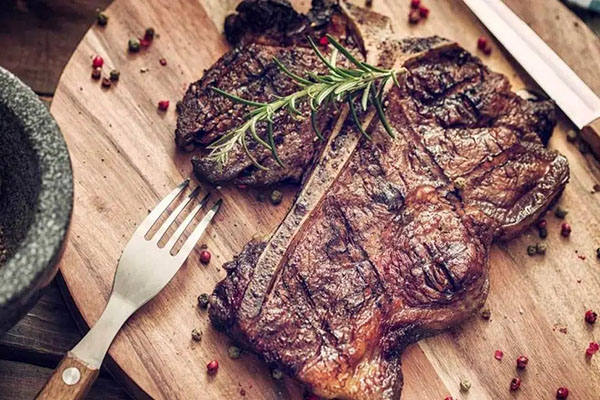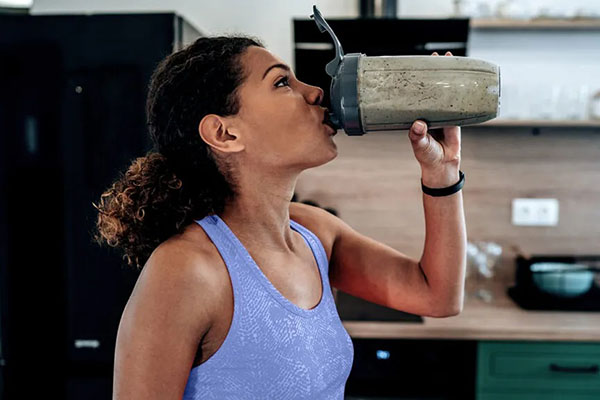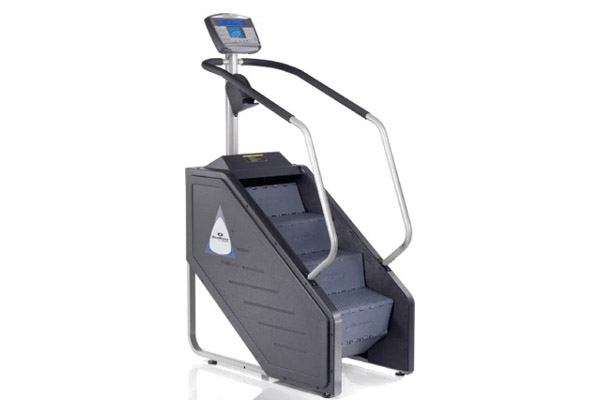Many individuals, especially bodybuilders, fitness enthusiasts, workout enthusiasts, and gym-goers, have a common goal of achieving firm and well-defined muscular bodies.
This objective drives anyone who lifts weights, uses exercise machines, runs or walks on a treadmill, or engages in any other form of fitness routine. It’s all about attaining a visually appealing physique.
Whether people admit it or not, around 90% of the motivation for going to the gym is rooted in narcissistic and superficial desires.
Those of us who have delved into the realms of nutrition, dieting, and energy-boosting foods are also heading in the same direction with similar outcomes. As the saying goes, “To whom much is given, much is required,” or “When you know better, you do better.”
Both of these sayings hold true. Once you become aware of the damaging effects of destructive behavior, you can no longer harm and mistreat your body as you may have done in the past.
How Much Protein Should I Take?
When it comes to basic nutrition, the necessary elements are proteins, fats and carbohydrates, amino acids, complex carbs. Also, a lot of water is needed. For energy, tissue building and regeneration, you will be needing these elements.
Of course the nutrients listed above are mainly macro nutrients. I’ll be talking about the role of micro nutrients later in another article. These would be things like, ormus, polysaccharides, photons, enzymes, minerals and more.
In order to rebuild and enlarge are muscles, we will also need protein, but how much protein? What we don’t know is how much of our diet should be protein. Is it possible to have too much of a good thing?

Can too much protein harm you?
Yes it can. Have you heard of people getting protein poisoning? This has happened when people eat rabbits for example for an extended period of time. They get no healthy fats with their protein. In nature you’ll never see proteins and fats separated. Think about eggs, meat, nuts etc. They all have the two macro nutrients combined together. Always consume high quality fats with your proteins.
Where Can I Find My Proteins?
You can get proteins from meat, fish, chicken, beans, milk and soy products (not recommended though as soy contains lots of anti nutrients and estrogen raising compounds). They can also be found in nuts and grains, though only a minimal amount. I strongly suggest you avoid protein from soy, unless it’s fermented.
Also avoid milk from factory farms. I prefer raw milk. I get mine from a company called Organic Pastures. Raw milk has all the enzymes, minerals, fatty acids and protein in their natural state so it’s easy to absorb, even if you have lactose or casein intolerance.
Different countries establish different recommended daily allowances from different nutrition authorities. Find out what is allowable for you where you live.
So let’s answer how much protein do we need. As per US Department of Agriculture, an average person of average weight will only need 70 grams of protein each day. Remember that’s a very rough estimate.
Athletes require more than this RDA to support muscle repair, growth and to protect their bodies against the rigors of training. Here is the formula how much protein to take. Typically 1 gram of protein per body weight (per day) is recommended if you’re training intensely and very often.
According to sports authorities, an athlete should consume double the amount of RDA than less active people. Remember, listen to your body though. Each person is different.
Most weight training athletes take care of their heavy protein needs by eating a whole lot more than the RDA. They do so in the form of the best protein shakes, smoothies, meat, milk and eggs.
If you’re an active weight trainer, having excessive protein intake doesn’t seem to have any negative effects. However, there could be risks for anyone with kidney disease, diabetes or weight problems.
It’s not calories in vs calories out. It’s not what you eat that’s important. It’s what you assimilate and absorb. You could eat all the best protein in the world and not be able to digest or absorb any of it.
It’s all about assimilation here guys.
When there is too much protein (amino acids), it is broken down by the body from amino acids into ketones or glucose, which can then be excreted through urination.
Interestingly enough, the body has no default mechanism for excreting excess carbohydrates or sugars from our bodies. It simply stores them as fat. Excess fats and proteins get used, excess carbohydrates get stored.
We were never meant to eat the amount of grains we eat today. It’s horrific.
Most of the excess amino acids are converted to urine and is eliminated through urinating.

How Much Protein? Two Ways to Establish Protein Requirements
Body Weight –
For males of average size, they require less than one gram of protein per kilogram of bodyweight. Bodybuilders should consume up to 2 grams of protein per kilogram of bodyweight.
It all depends on how much muscle you want to gain. The bigger you want to get, the more protein you would consume.
By Percentage of Macronutrients in Diet (protein, carbohydrates and fats) – Protein should comprise 35% (max) of your total intake. To do this, you’ll have to do some calculations.
By Daily Caloric Intake –
In terms of percentage, according to some weight training coaches, you should consume 40% from carbohydrates, 40% from protein and 20% from fats. This is way too much protein, according to the US Dietary Reference Index.
I think this is way too many carbohydrates. Sugar is poison and will cause just about every known disease. Carbohydrates turn into sugar and raise insulin levels. Guys and girls who workout can probably get away with eating this % of carbs because they sweat out all the sugars but it’s still not healthy.
Are We Getting Correct Nutritional Data?
There are a lot of protein intake recommendations. However, most of them come from companies that make protein supplements. The data can sometimes be misleading. And don’t trust those bodybuilding magazines either, they’re owned by supplement companies.
It’s shocking I know but it’s true.
While the nutritional requirements of active athletes and bodybuilders can be more compared to an average persons, much more than that may be needed in order for them to achieve muscular results.
Some protein supplements can be ineffective and unneeded. I like One World Whey and Sunwarrior Protein powder personally.
It’s easy to get confused with all the information in the internet. However, you should remember that nutrition is a science, not an art.
The daily recommended intake for protein is a little less than 1 gram per kilo of body weight but it’s slightly lower for women. It’s really that simple.
Just check in with your body and listen to what it’s telling you. Listen to it and don’t trust a nutritionist, don’t trust me, trust your own intuition to tell you what’s the right amount of protein to eat each day pursuant to your goals.
Women who are pregnant should eat a little bit more than men. People who are athletic can double their protein consumption and have no negative effects. By athletic we mean you train really hard. You really break a sweat each time you pump iron. You’re not just messing around in the gym. You’re getting work done. And you’re doing this at least 4-5 times per week and active in sports on the other days.
This is what I mean by athletic.
Here’s A List Of High Protein Foods
Some of the most bio available protein sources include:
- Grass fed raw meat (cooked if you don’t like making beef jerky like I do)
- Raw Milk
- Free range organic eggs
- Colostrum
- Sun Warrior protein powder
- Hemp seed powder
- Fish (salmon is my favorite)
- Spinach
- Goji berries
- Spirulina (fermented)
Related post: Best Carb Free Protein Powder



